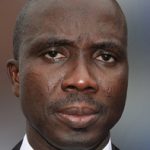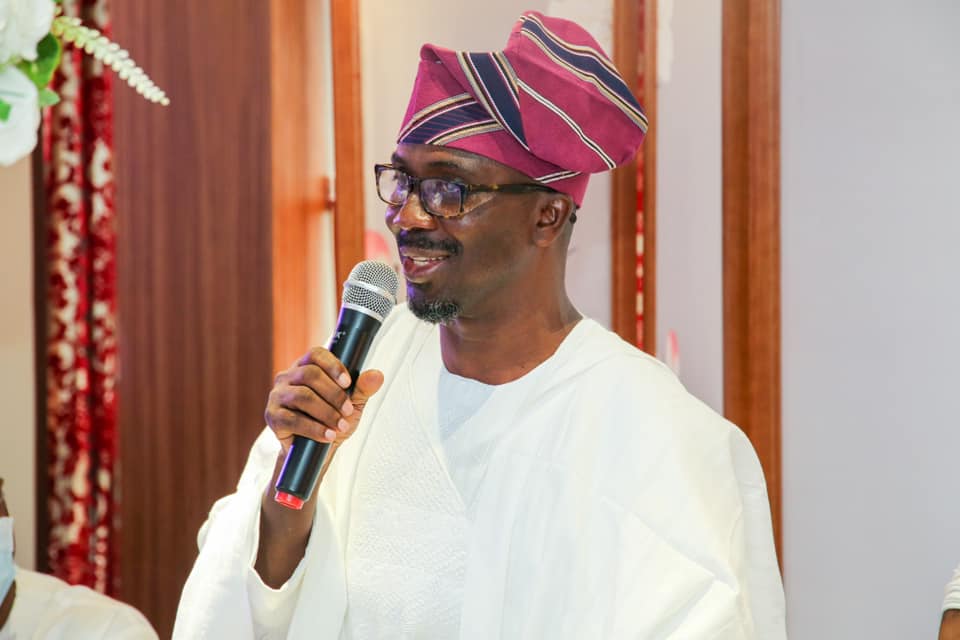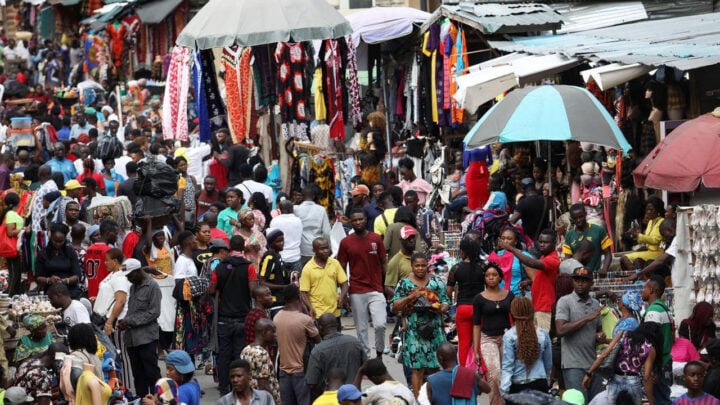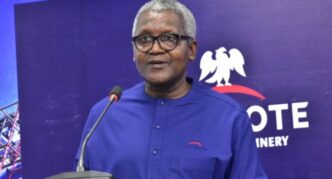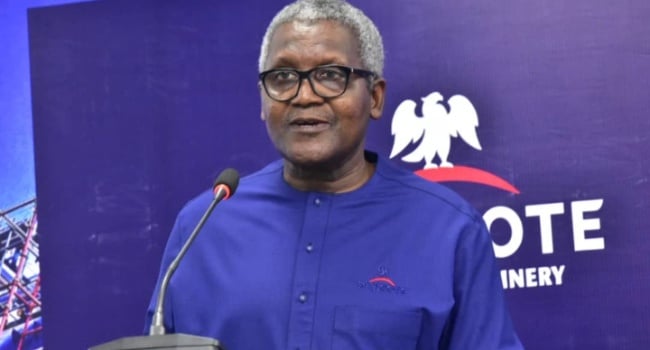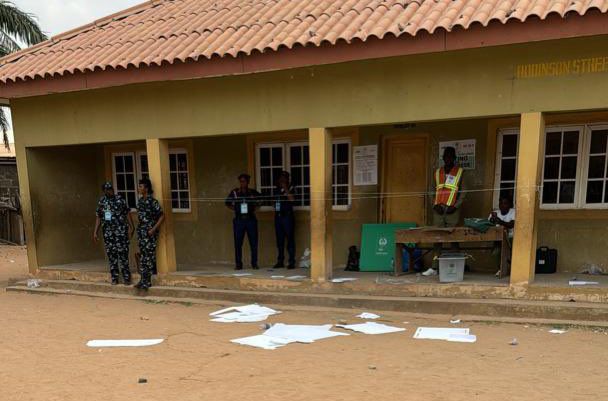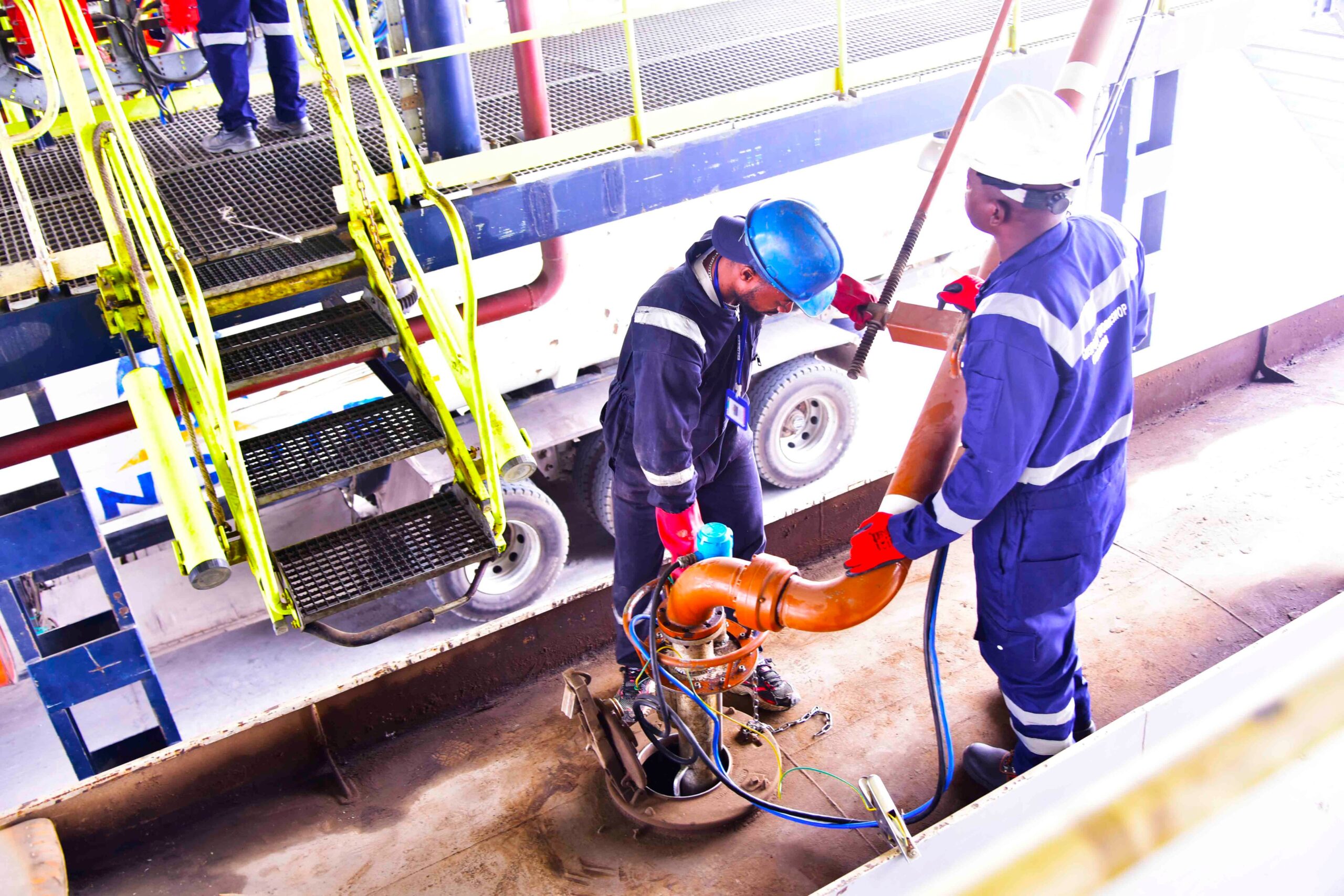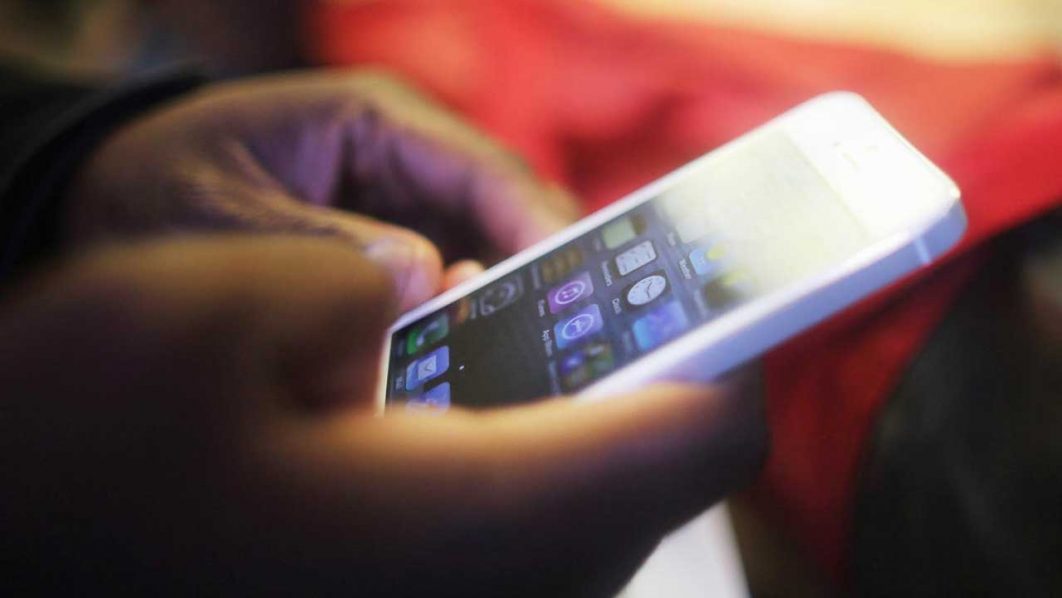'At the government hospital that I was almost killed, a night’s stay in the ICU costs N150,000'
Perhaps I should not be alive. But I am. Despite the odds, I turn 58 today. I am still frail and fragile. But now, I can stand on my feet again, bearing testimony to those sacred words of the Almighty Allah himself that “No soul can ever die except by Allah’s leave and at a term appointed (Quran 3: 145)”.
It all started on February 19 when I drove myself into a government hospital in Abuja for an elective surgery. The surgery itself was meant to last some minutes and I should return home not later than in two days time. That was what I was told. But that was not what happened.
Since that fateful Monday morning, I had gone in and out of the surgical theatre nine times for six major operations and three minor procedures. I had spent six days in the Intensive Care Unit (ICU), surviving on oxygen and relieving myself through catheters. I had become totally dependent on others in performing even such personal functions like cleaning myself; I had lost 20 kilograms in five quick months and reduced to a mere sack of bones. I had lost the use of my limbs and, like a toddler; I had to learn to walk again. I had spent millions of naira and thousands of dollars of my own and other people’s money. I had travelled hundreds of kilometres to find help. I had reached the very bottom of despair itself; and I had made plans for my own burial. But somehow, I am still alive.
I am someone you could describe as a hands-on person, or even a keep-fit buff, careful about what I eat or drink and what I do with my body. Therefore, I seldom have any need for a hospital. However, since my dad died of prostate cancer 23 years ago, the doctor had warned me that male children of prostate cancer victims are predisposed to suffering from the same fate. Since my 40th birthday, I had therefore ensured that a comprehensive medical check-up was a part of my annual ritual. In the course of one of those routine check-ups, I was alerted a few years ago of an enlargement to my prostate. Following this discovery, I enrolled in a public medical facility in Abuja and made sure to see the urologist every three months. At one point, I was also advised to also see a nephrologist once in a while.
Advertisement
All these visits I understood were merely precautionary. But I was beginning to spend too much time on the waiting line in the hospital than I could afford. Before long, I changed to another hospital closer to my house. Even though it is also a government hospital, it has a private wing that charged higher fees for quicker consultations and service. I thought this arrangement served me better. I was assigned a consultant urologist of my own. And also saw a nephrologist in the hospital. However, while the nephrologist kept assuring me that everything was fine, the urologist started to raise alarm. At a point he told me that if we didn’t act fast, my enlarged prostate might begin to affect my kidney. The only solution, he said, was surgical intervention.
He was the expert, so I yielded to his pressure and agreed to do the surgery. That turned out to be a major mistake. But I only became wiser in a horrifying hindsight. My result from the prostate test showed that I was, in fact, a lot better place than several of my friends who all were surprised that I chose to go under the knife for an ailment that more often than not, offer a little more than mere discomfort so long as it is not cancerous. They were right. The only prostate-related complaint I had was that I urinated twice or thrice at night. I did not have any pains or difficulty in urinating, or any symptoms beyond the ordinary. It turned out that all I needed was a slight change in lifestyle, not drinking or eating late into the night and to continue to take the drugs that was prescribed for management purpose, which, by the way, my urologist had asked me to stop taking.
Although it did not mean much to me at the time, but in this hospital, patients do not have access to the results of laboratory tests. The doctor electronically sends requests to the laboratory and once the patient has made payment, the laboratory will conduct the test and send the results in the same manner to the doctor. The doctor would access the results on his computer and based on this, makes pronouncements on what the patient needs to do next. In my case, the verdict was surgery.
Advertisement
This was why I drove myself to the government hospital on February 19 and spent the night preparing for the surgery the next day. A week before, I had gone through a cystoscopy procedure. That was my first time ever in a hospital surgical theatre. But since the 20th of February, I have been in several theaters more than an average person in a single lifetime. It happened that during the first surgery, the surgeons had ruptured my bladder. In panic, they had to abandon the prostate operation that brought me in, hurriedly placed a catheter inside my urethra, and returned me to the hospital ward. It so happened also that the catheter was not properly placed, so urine was not going to the bag. I was returned to the theatre to remedy the situation. When I came out this time around, the urine was reverting back to my genitals, which had by now become grotesquely engorged with fluid.
Three trips back to the theater did not change anything. And this was enough to send everyone into panic. I was wheeled to the ICU, where I passed out and had to be placed on oxygen. At this point, it had become obvious that the medical team had reached their wit’s end. They had lost control. One of them had in fact quietly told my family that my chance of survival was 50-50. They were already thinking on moving to the next patient. After all, they had “tried their best.”
But then, to paraphrase Shakespeare, heaven has no fury like a woman about to be widowed. My wife, Odunayo rose to the occasion. She thought that what was needed to save my life at that point were some ‘muscles’ that would compel the doctors to give me proper attention. She told my children, their friends, and my colleague, Akintoba Fatigun who was already weeping after seeing how helpless I was, to stay strong. She picked up my phone and called my Oga, the Chairman of THISDAY and Arise TV, Mr. Nduka Obaigbena to inform him about my condition. All she needed were calls to the people in top places on the need for the hospital management not to abandon me. Mr. Obaigbena immediately called the Minister of Health who in turn called the head of the hospital. He also promptly dispatched one of his top managers, Mr. Israel Iwegbu, to move over to the hospital and report back to him.
Akintoba also called my boss, Dr. Abubakar Bukola Saraki who was then in the United States. The former Senate President immediately directed Akintoba to get some money across to my wife and also promised to speak with the health minister. My wife also sent an urgent message to my brother, the Senator representing my Senatorial District, Ogun Central, Senator Shuaib Afolabi Salis. The Senator immediately came over to the hospital to meet the Chief Medical Director. With all these influential forces breathing down on their neck, the hospital realized this was one patient they could not afford to trifle with. I was returned to the theatre where they had to open me up to properly adjust the catheter and ensure I hadn’t suffered any internal damage. I ended up spending six days in the ICU and later returned to the private room. In the ICU, the traffic and caliber of people who came to see me surprised the hospital management. One evening, Dr. Saraki himself led a very long and powerful delegation to the hospital such that when he said: “Yusuph, get well fast, look at the whole troops turning out to wish you well”, I could not but agree with him. Same way, Senator Salis and his son, Kamal, who was always traveling down from Kaduna to see me. Just as Senator Tokunbo Afikuyomi once led his wife, children, and friends to check up on me.
Advertisement
After two weeks, I was discharged and went home. It was Ramadan. For the first time in over 45 years, I could not participate in the Ramadan fast. While in the hospital, I said my prayers most times lying on the bed. Although I had lost so much weight, it looked I was set on my way to recovery. Until something happened that would change everything, kick-starting another wave of anguish, fear and relentless pain.
It was the second day after Eid-el-Fitri. My son, Oladapo had persuaded me to take a small pack of Lucozade Boost juice on Sallah day, believing this might stimulate my appetite. This was on the 10th of April. The next day, my wife observed that my urine was the same colour of the Lucozade Boost that I had taken the previous day. She felt something was wrong. However, Oladapo and myself thought it could be the effect of the Lucozade Boost drink.
For some reason, my wife then brought out her blood pressure monitor to check my ‘vitals’. She found out that though I was hypertensive, my blood pressure was low while my pulse rate was unduly high. Then, I started having this electric shock sensation once I moved my head back, even a little. She became alarmed and kept on repeating the blood pressure and pulse rate tests. At one point, I suggested the machine could have malfunctioned. But when she used it on herself and Oladapo, the figures appeared normal. At about 7 pm, we all agreed to visit a nearby pharmacy to use their BP monitor to double check, so we wouldn’t raise a false alarm. But we got the same reading from the pharmacy. The alarm was real.
Immediately, we called a urologist working in another government hospital, who after listening to us promptly declared an emergency. He then directed we should go to the emergency ward of the public hospital where he works and he would get a consultant to attend to us. We did as he directed. But one hour after, we were still waiting. No one was in sight to attend to us. After a quick deliberation, we decided to go to the private hospital where we were normally registered. It was at the private hospital that the doctor on duty alerted us that I had septic infection and that I could go into shock anytime. This was the second episode for me. I had suffered from sepsis during my earlier surgical rounds in the hospital. Sepsis is a condition in which the infection-fighting processes turn on the body, causing the organs to malfunction. In other words, my body was beginning to poison itself.
Advertisement
The doctor at the private hospital urged me to hasten to the public hospital where I was recently treated. We called the urologist again. He directed that we report to the Accident and Emergency Ward. We did. Yet again, the doctor that was meant to receive us was nowhere to be found. Several panicked calls to her number, no response. After what seemed like eternity, she suddenly materialised. She had gone to eat, she said, casual and indifferent as nature itself. This time, I was to spend nine days in the hospital.
But at this point, we had lost confidence in my urologist and we had started to make arrangements to find a hospital in Egypt to continue the treatment. One night, the family insisted I should be discharged, even if against medical advice so I could make a scheduled trip to Egypt. My wife already signed the Discharge Against Medical Advice (DAMA) form before Senator Salis phoned me and said we should hold all actions until he arrived as he had invited a leading expert in urology from one of the universities in Lagos to review my case that same night. The Professor came in with the senator and took us through an hour-long lecture on the issues. He concluded that the case was not beyond what could be handled in the hospital. But “things could have been done differently during the surgery”. He also enlightened us that with sepsis not properly treated, it was doubtful if I could make a five-hour journey in an airplane to Egypt. He had come with a more senior urologist in the same hospital who had been his student. We all agreed that I would stay if he could guarantee that the more senior surgeon would take over my case and report progress to him and the Senator.
Advertisement
Again, I returned home. This time I even felt better and was confident that my recuperation had started. But it turned out to be the calm before the storm, the biggest storm of all. We found out that as the days went by, I started to lose control of my limbs. As usual, my wife was the first to raise the question one morning. She asked why I staggered each time I tried to walk. I said it could be because I just woke up. I tried to allay her fears, but I could not hide for long. Soon, I was not able to raise my hand. My initial thought was that this was because I had stopped my morning exercise. I then resumed some guided workout sessions where one of my sons and Kamal Salis, my Senator’s son, would guide me through. But instead of any improvement, things continued to degenerate, and they were happening so fast.
In no time, I began to depend on my wife to brush my teeth, clean myself in the bathroom, put food in my mouth, perform ablution, and do any chores that involved the use of my right hand. Then my right leg soon followed. It was like something was switching off my limbs one by one. Then at night, the pains descended on my neck and shoulder like a boulder. Sleep became impossible. Turning became a torture. To find a position of relief, that small posture that would grant me a respite from this oppressive pain, no matter how fleeting, became impossible. All through this ordeal, I had tried to be brave. Now, I could no longer hold back. I cried.
Advertisement
The pain was just too much. And it came in the night. Therefore each night approached with terror because I knew what laid in wait for me in the dark. Maybe if I stayed up. I told my wife that perhaps, I should try to sleep in sitting position. But nothing I tried would help. The name given to this one, this latest harbinger of pains; is cervical spondylosis. But little did we know that it was much worse than that. One Saturday, we decided to go to a private hospital that specialised in orthopedics. We were told to come back the following week’s Wednesday. But the pain would not relent. Whatever I do, wherever I turned, it flogged me like an errant child. The hospital later called to change Wednesday to Friday. But by then, we had already sought a more urgent alternative. At 9pm that same night, we met the orthopedic surgeon. He recommended some drugs and a neck collar, which I must now wear on my neck like a shackle. That night, after a long time, I had a strange sleep without pains. But it was like shooing off a wild dog with a stick. It may back off for the moment, but it would come back. By the next day, the pain returned, ferocious, as if angry to be disrupted for one night.
Before our next appointment with the orthopedic surgeon, we took the initiative to do an MRI test. But by then, my case had become a desperate emergency. All my limbs have packed up. Throughout these ordeals, I had never missed my prayers and supplications to Allah. But that morning, I could not move even one finger to press the electronic counter or hold the tasbih.
Advertisement
“Is this illness also going to separate me from my God in my last days?” I lamented to my wife. She said it was only temporary and everything would be fine. But I learnt she later went into the bathroom to cry. She is a brave woman. But I am sure by this time, even she would also have started to contemplate the worst.
When the orthopedic surgeon saw the result of the MRI test, he took us to see a neurologist in a private hospital as well. The neurologist explained that some bones had ruptured in my neck, which had disorganised the nerve supply system from the brain down to the limbs. Again, I had to go in for a surgery to restore the functioning of the nerves. The operation was to be carried out on May 13. While waiting for the appointed date, my colleague, Akintoba Fatigun came to see me. He thought I was getting better. Many of my friends who were speaking to me on the phone thought the same, because despite all that I had suffered, my voice had remained strong and clear. I told Akintoba that in fact, the situation had gotten worse since the last time he visited and that I was actually waiting for another surgery.
When Akintoba left the house, he went straight to Dr. Saraki’s residence and told him of my situation. The former senate president immediately started to make calls to different hospitals in Saudi Arabia, the UK, and the US. I do not have a valid US visa and we had no time to apply for one. The Saudi hospital, after studying the MRI, later replied that they could not deal with the situation. Then, someone suggested Egypt. Contacts and appointments were made. To enter Egypt, one only needed a valid UK visa to obtain the Egyptian visa at the point of entry. By Monday, May 13th, I was set to travel. Dr. Saraki had purchased business class tickets for my wife and me. He also provided money to pay for the surgery and living expenses for a month. A day before my departure, the house was full with several family friends, despite our best efforts to keep the trip as secret as possible. They were people from different parts of the country and people of different religious persuasions. At that point, I was not Yoruba or Muslim to them. I was just another human being. Even as I lay helplessly in bed, contemplating the assortment of motley crowd that had gathered in my room, I wondered if they thought they were saying a final goodbye to me.
It was time to go. My wife and my second son, Oladipo had already packed the bags. Then we realized that this yet another important challenge. My room was on the second floor. How do I get down and into the car? We could only think of two options. Oladipo would have to put me on his back and take me downstairs or I would have to crawl down the staircase. But even these two options were fraught with risk. Yes, I had lost so much weight and Dipo is a burly young man, but he is only 23. The thought of having my son carry me on his back because I could not walk was a distinct trauma on its own. But what if he slipped, and we both crashed to the ground? There could only be one outcome. How would the young man forgive himself? But none of these happened. Dipo successfully carried me downstairs and got me safely into the car.
On the way to the airport, I told my wife what my Plan B was if Oladipo was unable to carry me – to crawl downstairs. “That would have broken me”, she said. I responded with a joke that I needed her to remain unbroken because a broken man could not depend on a broken woman. In the last five months, she had become my in-house nurse, minder, and caregiver.
Five hours later, we landed in Cairo. My hospital, Neuro Espitalia, is located in a city called 6th of October, which is about an hour’s drive from the Cairo International Airport. I learnt that the city got its name in commemoration of the date that one of the Arab-Israeli wars broke out. We were joined at the airport by my third son, Oladepo who had arranged a two-week leave from his London office and another two weeks to work from the Cairo office of his company. He was to provide an additional hand to me in Egypt for the next one month. Our guide was a Nigerian gentleman called Rabiu Hamza, a Ph.D student at one of the Egyptian universities. We arrived at the Neuro Espitalia at about midnight that Monday. For the second time in almost a month, I had another sound sleep. Tuesday was devoted to various laboratory tests and to getting a proper record of my medical history. On Wednesday morning, I had the surgery, which, as they explained, was to “clean an abscess in the cervical vertebrae, stabilize the cervical vertebrae and expand the neural canal”. I didn’t understand everything, but I just wanted to get well. The surgical operation was led by Prof. Ibrahim Lotfy, an elderly but friendly surgeon, and Prof. Dalia Rushdi.
After the successful operation, the surgical team decided to culture fragments of bones and tissues extracted from my back to determine what went wrong in the first place. It was an investigation that took days and a lot of blood tests. What they found was, to say the least, shocking. It was described in medical terms as “necrotizing Granulomatous Inflammation Compatible With Tuberculosis of the Vertebrae. No malignancy”. In short, it is called tuberculosis of the vertebrae. This was the stealthy thief that was stealing my limbs one by one. But even the surgery could not return everything this disease had stolen from me. I had to recover them myself by re-learning the use of my legs and hands again.
This was when I realized how much grateful humans should be to their creator for even the most simple things we take for granted everyday. I realised that even the mere ability to scratch one’s face when it itches, what we do countless times everyday without even thinking about it, is indeed a big deal. When my face itched, I would need my son or my wife to scratch it. To change my sleeping posture, I would need them. To change the position of my hands, or clean the sputum that come sometimes when I coughed, I needed them to do these and everything else for me.
At a point I could no longer fold my fingers to form a fist in order to allow nurses take blood samples or fix the cannula for intravenous infusion. Over the last five months, my arms had been covered in needle marks like a dedicated drug user; to administer some injections, to take blood or to fix cannula for intravenous medication.
Few days after the surgery, I began physiotherapy sessions in the hospital. Several physiotherapists came to work on me. But one particular one stood out for me. His name is Ahmed El-Sanadidy, the man from Alexandria. Even after I left the hospital for a rented apartment close by, we contracted El Sanadidy to continue my rehabilitation therapy. He got paid per session. He was such an effective, devoted, passionate, friendly, hardworking, and creative professional. He was also hot on demand in his hometown, Alexandria, and in the city of the 6th of October. In the early part of our sessions, he would form a protective ring around me with his arms to guard me from falling. He taught me to walk all over again, to climb the stairs, to use my arms, to strengthen my fingers, and to regain some level of physical fitness. I called him ‘my boss’. He was the reason I extended my stay in Egypt to two months. He was making some very good progress with my rehabilitation and I did not want to terminate it abruptly.
But there was yet another challenge. The hospital had tried in vain to get me to go to the toilet. For almost two weeks, even after two sessions of enema, nothing came out. After we moved to the apartment, I thought the privacy of a home would help, but nothing. I would feel pressed to use the toilet and spend time siting and groaning in pain, but nothing would come out. It was later realised that the muscles around my waist had become so weak it could not exert sufficient pressure to push out the waste. This became another source of agonizing pain. My stomach felt as solid as if I had been fed the concrete cement. This became another major prayer point for me.
“You should be saying ‘Alhamdulilahi Rabbil alaamin’ because we should let our gratitude to God be more than our requests to Him”. My wife said one day as I was petitioning God for the agony of my plumbing problem. It was a test of faith. But it was also a lesson never to forget. One morning, the plumbing problem resolved itself, not in the most dignifying manner. Since then, it has been easier than ever doing my ‘toileting business’. For more than four months, I was carrying a catheter around. At a point, it became two. But now, I am free of both of them.
Now, I am a bit stable. I can walk unaided. At a time I could not even move a finger, now I can sit down and type this piece on my iPad. I can perform my salat, the ablution, ruku (bowing), and the sujud (prostration) all on my own. There was a time in the past when I had to rely on people to do ablution for me and I had to pray lying down. I could not even turn my head to the left or right. I stared at the ceiling all the time and developed a system that enable me use marks on the POP on the ceiling as counter for my supplications. I have learned not to take anything for granted and to thank my maker for enabling any physical move that I am able to make.
I had written this piece to celebrate the fact that I am alive, despite my ordeal in the past five months. But I have also written to share my experience with the Nigerian medical system. Even before I traveled to Egypt, I realized that so much is wrong with our medical system, for which I nearly paid with my life. But my experience in the Egyptian hospitals and the Egyptian doctors made me realise this even more. Why do our doctors behave as if they are being forced to be doctors; as if there is no minimum standards to which they must comply; as if they can do anything and get away with it; as if it was enough for them to just claim that they tried their best? The Egyptian hospital was replete with stories of Nigerians who go there to correct a surgical operation that had been performed in Nigeria, some from the glamorous hospitals in Abuja where they charge exorbitantly.
At the government hospital that I was almost killed, a night’s stay in the ICU costs ₦150,000. I doubt that many hotels charge that much for a standard room. Yet, patients are still made to pay what they call “utility fees” calculated based on the number of days the patient had spent in the hospital. We are not even talking about the cost of medication and drugs. The same hospital sold Tavanic 500mg, an antibiotic used to treat infections for N42, 000, a pharmacy located only a few metres away from the hospital sold the same drug for N20,000. In Egypt, we bought the drug for 124 Egyptian Pounds which is about N4,092 at the exchange rate of ₦33 to one. How did we find ourselves in a situation where government hospitals have become the most expensive and the most inefficient in Nigeria? Health workers, doctors, nurses etc in the private hospitals may not be any better, but at least they appear committed to their job. Public health workers in Nigeria behave as if they would rather be somewhere else, as if they are actually doing the patients favour. The painful truth is, they don’t care whether you live or die. There is work here for everyone, the government, the professional bodies and the training institutions.
I was lucky to have powerful people who could muscle them. What about the millions of Nigerians who don’t know anybody? If I were in their situation, I would have long been forgotten. Why would a Nigerian need tonnes of money and powerful friends to stand a chance of surviving a medical challenge in our country?
My last words are for those of us whose work demands long sitting hours. We need to be mindful of our sitting postures and be sure to get up intermittently. Please don’t ignore any pain. Regular check up can make a difference between life and death. Today I am alive. I give thanks to the Almighty Allah who has given me a second lease of life out of his infinite mercy, not because I deserve it. All glory be to Him.
Olaniyonu wrote from Abuja.
Views expressed by contributors are strictly personal and not of TheCable.
Add a comment
